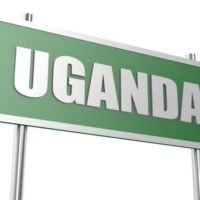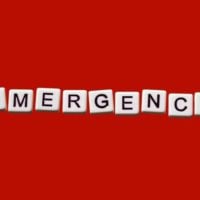Deadline: 23-Sep-21
European Commission is calling for proposals for Hubs for Circularity European Community of Practice (ECoP) Platform.
Scope
- Circularity is an essential part of the industry transformation towards climate-neutrality and long-term competitiveness. H4C are defined as first-of-a-kind, lighthouse demonstrator plants of commercial size implementing industrial symbiosis or urban industrial symbiosis with the aim of achieving a step change in circular utilization of resources and GHG emission reductions, within a given representative geographical area. H4C have strong technological focus and industrial dimension, but their implementation leverages elements well beyond R&I. Specific implementation (including funding) strategies will have to be designed, ensuring the participation of all stakeholders (Industry, SMEs, local authorities, educational institutions and civil society). The common target is to collectively achieve and demonstrate at scale a leap towards circularity and carbon neutrality in the use of resources (feedstock, energy and water) in a profitable way.
- The ECoP is a tool for connecting the Hubs and the community of interest into a network for exchanging tools and knowledge across regions. It has also been proposed by Processes4Planet partnership. The project will embrace possibly all existing H4C and circular systemic activities and strongly link with the activities of relevant European Partnerships, such as P4Planet.
Funding Information
The check will normally be done for the coordinator if the requested grant amount is equal to or greater than EUR 500 000, except for:
- public bodies (entities established as a public body under national law, including local, regional or national authorities) or international organisations; and
- cases where the individual requested grant amount is not more than EUR 60 000 (lowvalue grant).
Expected Outcomes
Project is expected to contribute to the following outcomes:
- Establish a European Community of Practice (ECoP) as an effective and sustainable forum/platform connecting hubs for circularity (H4C) and all actors willing to invest in industrial urban-symbiosis (I-US), towards building new circular value chains;
- Provide up-to-date support to the H4C by collecting and evaluating knowledge, tools, models and solutions and making them accessible to the community, preparing training material dedicated to circular practitioners that can drive the H4C roll out across Europe;
- Define a set of methodologies and kits of specific KPIs (e.g. a kit for any single industrial sector) to enable the progress quantification of circularity and symbiosis with particular attention to the definition of gaps to be closed in order to reach the expected impact.
- Analyse collaboration models, non-technological barriers, tools, technologies and existing solutions for I-US and circularity, especially those from previously funded projects;
- Provide a state-of-play analysis of regions/areas best suited for the first implementation of advanced H4C in Europe, coupled with a detailed study of the strength and weaknesses of the regions/areas selected, including a symbiosis maturity level (Symbiosis Readiness Level, SRL) and a number of specific scenarios for the technology and process implementation;
- Establish a roadmap on how to achieve an effective implementation of a certain number of first-of-a-kind pilots of advanced H4C by 2026, supported by a solid blended funding strategy, targeting the accomplishment of 2050 Green Deal Goals;
- Spread the H4C concept to all regions of Europe, support the H4C cooperation network and promote the transfer of the circular models across sectors and borders;
- Stimulate public and private investments in circular economy projects;
- Set up an effective collaboration with stakeholders represented in the P4Planet partnership, including non-governmental associations, and provide a solid plan for the continuation and self-financing of ECoP after the completion of the project;
- Drive and coordinate business-to-territory relationships in the area in which the H4C, or neighbouring H4C, are located (i.e. with authorities, SMEs, associations, educational organisations, civil society, etc.).
Eligibility Criteria
To be eligible for funding, applicants must be established in one of the eligible countries, i.e.:
- the Member States of the European Union, including their outermost regions;
- the Overseas Countries and Territories (OCTs) linked to the Member States
- eligible non-EU countries:
- countries associated to Horizon Europe;
- At the date of the publication of the work programme, there are no countries associated to Horizon Europe. Considering the Union’s interest to retain, in principle, relations with the countries associated to Horizon 2020, most third countries associated to Horizon 2020 are expected to be associated to Horizon Europe with an intention to secure uninterrupted continuity between Horizon 2020 and Horizon Europe. In addition, other third countries can also become associated to Horizon Europe during the programme. For the purposes of the eligibility conditions, applicants established in Horizon 2020 Associated Countries or in other third countries negotiating association to Horizon Europe will be treated as entities established in an Associated Country, if the Horizon Europe association agreement with the third country concerned applies at the time of signature of the grant agreement.
- low- and middle-income countries.
For more information, visit https://bit.ly/2Xig47P









































